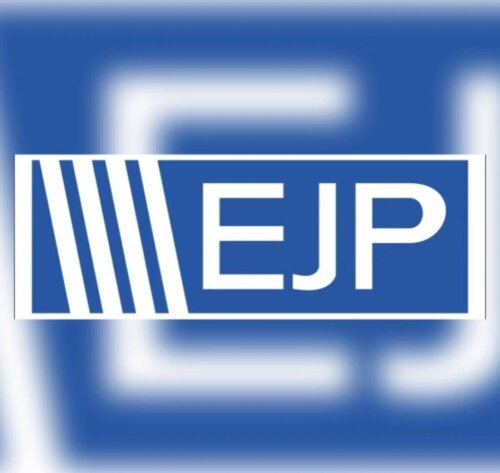Best Admiralty & Maritime Lawyers in Mar del Plata
Share your needs with us, get contacted by law firms.
Free. Takes 2 min.
List of the best lawyers in Mar del Plata, Argentina
1. About Admiralty & Maritime Law in Mar del Plata, Argentina
Admiralty and Maritime law in Mar del Plata is part of the broader national framework governing shipping, navigation, and marine commerce in Argentina. The city’s port activity, fishing industry, coastal tourism, and shipping operations create a steady demand for specialized legal guidance. In Argentina, maritime matters are largely federal, with authorities such as the Prefectura Naval Argentina supervising safety, navigation, and port security, while courts resolve civil and commercial disputes arising from maritime activity.
Mar del Plata hosts one of the country’s busiest fishing fleets and a significant commercial port. This makes issues like cargo claims, vessel collisions, salvage rights, crew contracts, insurance coverage, and port regulations common topics for lawyers who practice in this field. A local maritime attorney can navigate the intersection of civil, commercial, and administrative law to protect clients’ interests before tribunals or regulatory bodies.
Local practice in Mar del Plata often involves coordinating with national agencies and port authorities to address safety, environmental, and navigation requirements. For reference, the Prefectura Naval Argentina provides enforcement and safety guidance, while the national government maintains a centralized legal framework through official normativ frameworks like InfoLEG.
Official norms and enforcement guidance for maritime matters in Argentina are published by national agencies and made accessible through government portals.
2. Why You May Need a Lawyer
- Collision or grounding near the port have you facing liability, repair costs, and potential third party claims from dock operators or insurers in Mar del Plata.
- Cargo damage or loss claims involve carriers, freight charges, and insurance coverage for shipments routed through Mar del Plata port facilities.
- Seafarer injuries or illness on a local vessel require enforcement of rights, compensation, and coordination with maritime employers.
- Contract disputes for chartering or towing of vessels based in Mar del Plata, including performance, payment, and breach issues.
- Port regulatory compliance fines or enforcement actions by authorities such as the Prefectura Naval Argentina or port authorities at Mar del Plata.
- Maritime liens and vessel arrest if a creditor seeks security or payment from a vessel anchored in or visiting Mar del Plata.
A local maritime lawyer can help you assess liability, advise on insurance coverage, and represent you before federal courts or regulatory agencies to protect your rights and minimize exposure. When dealing with cross-border shipping contracts or cargo claims, having counsel familiar with Argentina’s federal maritime framework is especially valuable.
3. Local Laws Overview
Argentina’s maritime framework blends federal statutes with regulatory rules administered by national agencies. Notable laws and regulations that commonly arise in Mar del Plata matters include:
- Código Civil y Comercial de la Nación (Civil and Commercial Code) - the consolidated civil law framework in force since 2015 for contracts, liability, and personal rights that affect maritime transactions and tort claims. This code governs vessel ownership disputes, cargo damages, and contract law applicable to shipping and navigation. See official text and updates at InfoLEG.
- Ley de Puertos (Ports Law) - national regulation governing port operations, concession regimes, port security, and related commercial activity affecting Mar del Plata’s port facilities. Changes and amendments are published in the InfoLEG database. For normative details, consult InfoLEG.
- Reglamento de la Prefectura Naval Argentina (Regulations of the Prefectura Naval Argentina) - administrative rules that govern navigation, safety, search and rescue, and port control in Argentine waters, including areas near Mar del Plata. These regulations are enforced by the PNA and explained on their official site.
Recent context: The Civil and Commercial Code, applicable since 1 August 2015, harmonizes civil liability and contract rules for maritime matters with national policy. The port sector has seen ongoing regulatory updates to strengthen safety and security in major ports, including Mar del Plata, with guidance and updates published by national agencies. For authoritative texts, see InfoLEG and the Prefectura Naval Argentina resources.
Key government resources you can consult for current rules and procedures include:
- InfoLEG - official repository for Argentine laws and decrees: infoleg.gob.ar
- Prefectura Naval Argentina - maritime safety, navigation regulations, and port oversight: pna.gov.ar
- Ministerio de Transporte - national transport policy and port infrastructure oversight: argentina.gob.ar/transporte
4. Frequently Asked Questions
What is Admiralty & Maritime law in Mar del Plata?
It covers disputes related to ships, cargo, contracts, collisions, salvage, and crew matters within Argentine waters and Mar del Plata port operations. It blends civil, commercial, and regulatory rules.
How do I file a maritime claim in Mar del Plata?
Start with a qualified maritime attorney who will gather evidence, notify insurers, and file the claim in the appropriate federal or provincial court depending on the case type and parties involved.
When does the statute of limitations apply for maritime cases?
Limitations vary by claim type, but many maritime actions follow the general civil limitation periods in Argentina. A lawyer should assess timing early to preserve remedies.
Where should I file a maritime lawsuit in Argentina?
Most maritime disputes proceed in federal courts with jurisdiction over admiralty matters, but some proceedings may occur in provincial courts depending on the matter and parties.
Why should I hire a local maritime lawyer in Mar del Plata?
A local lawyer understands the port's regulatory environment, provincial practices, and the preferences of local judges and administrators, improving the chance of a favorable resolution.
Can I represent myself in a maritime dispute?
You can, but maritime cases involve complex contracts, shipping terms, and regulatory issues. Experienced counsel typically yields more predictable outcomes.
Should I hire a lawyer who speaks English for shipping contracts?
Yes, if your contract or dispute involves international parties, English language proficiency can facilitate negotiations and interpretation of arbitration clauses.
Do I need to involve a seafarer as a plaintiff or claimant?
Crew claims, Spanish-language contracts, and application of international seafarer protections may require seafarer status, employer investigations, and applicable labor law considerations.
Is there a difference between arresting a vessel and attaching its cargo?
Yes. Vessel arrest places a lien on the ship itself to secure a claim, while attachment of cargo targets the cargo or related assets to satisfy a claim.
How much do Admiralty & Maritime lawyers charge in Mar del Plata?
Fees vary by case complexity and billing method (hourly or fixed). Expect upfront consultations and written fee estimates before engagement.
What is a maritime lien and how do I enforce it?
A maritime lien is a security interest on a vessel or equipment for a debt related to maritime services. Enforcement typically involves court or authority intervention and vessel arrest when applicable.
What steps after a maritime accident in Mar del Plata?
Secure safety, report to authorities, preserve evidence, consult a marine attorney, and notify insurers. Start documentation immediately for claims and potential regulatory actions.
5. Additional Resources
- Prefectura Naval Argentina (PNA) - maritime safety, navigation regulation, search and rescue, and port security guidance. Website: pna.gov.ar
- InfoLEG - official database of national laws and decrees for maritime matters. Website: infoleg.gob.ar
- Ministerio de Transporte - national policy on maritime transport, ports, and infrastructure. Website: argentina.gob.ar/transporte
6. Next Steps
- Clarify your objective and write a concise summary of the dispute or transaction in Mar del Plata. Time estimate: 1 day.
- Gather documents including contracts, invoices, communication records, vessel details, insurance policies, and incident reports. Time estimate: 2-5 days.
- Search for a local maritime lawyer with Mar del Plata experience via referrals or professional directories. Time estimate: 3-7 days.
- Schedule consultations with 2-4 lawyers to discuss your case, fees, and strategy. Time estimate: 1-2 weeks.
- Obtain engagement letters and fee proposals and compare hourly rates, retainer requirements, and estimated total costs. Time estimate: 3-7 days.
- Confirm representation and prepare a plan with milestones, expected timelines, and communication frequency. Time estimate: 1-2 weeks after choosing counsel.
- Monitor deadlines and stay involved by reviewing documents, decisions, and updates from your attorney. Ongoing as the case progresses.
Lawzana helps you find the best lawyers and law firms in Mar del Plata through a curated and pre-screened list of qualified legal professionals. Our platform offers rankings and detailed profiles of attorneys and law firms, allowing you to compare based on practice areas, including Admiralty & Maritime, experience, and client feedback.
Each profile includes a description of the firm's areas of practice, client reviews, team members and partners, year of establishment, spoken languages, office locations, contact information, social media presence, and any published articles or resources. Most firms on our platform speak English and are experienced in both local and international legal matters.
Get a quote from top-rated law firms in Mar del Plata, Argentina — quickly, securely, and without unnecessary hassle.
Disclaimer:
The information provided on this page is for general informational purposes only and does not constitute legal advice. While we strive to ensure the accuracy and relevance of the content, legal information may change over time, and interpretations of the law can vary. You should always consult with a qualified legal professional for advice specific to your situation.
We disclaim all liability for actions taken or not taken based on the content of this page. If you believe any information is incorrect or outdated, please contact us, and we will review and update it where appropriate.









